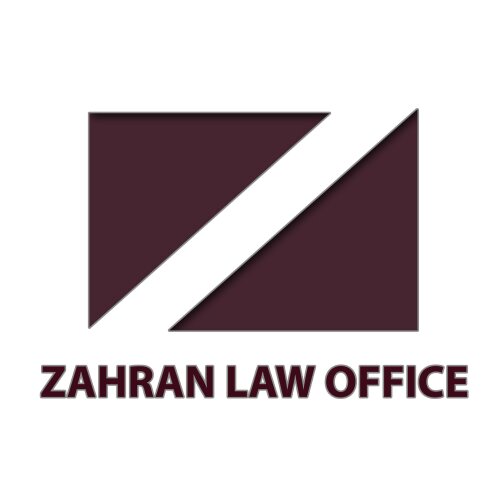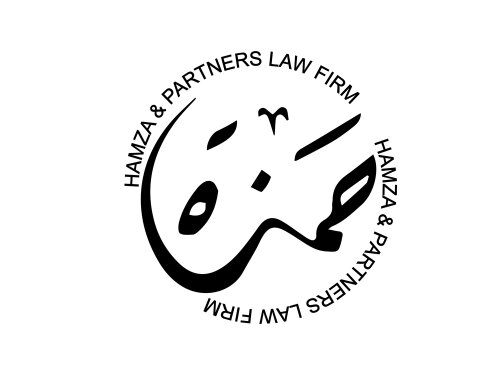Best Public-Private Partnerships (PPP) Lawyers in Cairo
Share your needs with us, get contacted by law firms.
Free. Takes 2 min.
List of the best lawyers in Cairo, Egypt
About Public-Private Partnerships (PPP) Law in Cairo, Egypt
Public-Private Partnerships (PPP) are collaborative arrangements between government entities and private sector organizations to finance, build, and operate projects typically related to infrastructure, public services, and utilities. In Cairo, Egypt, PPPs are instrumental in advancing large-scale projects such as roads, ports, water treatment plants, hospitals, and schools. The legal environment regulating PPPs in Egypt is designed to attract private investment while safeguarding public interests, creating a structured framework for the negotiation, execution, and management of these partnerships.
Why You May Need a Lawyer
Engaging in Public-Private Partnerships in Cairo, Egypt, involves complex legal and regulatory procedures that often require specialized legal advice. Individuals and companies may need a lawyer for several reasons, such as:
- Assessing the viability of proposed PPP projects and legal compliance
- Drafting and negotiating PPP contracts and related agreements
- Guidance on bidding and procurement processes
- Understanding risk allocation and dispute resolution clauses
- Navigating government permits, approvals, and licenses
- Ensuring regulatory compliance with sector-specific requirements
- Advising on financing arrangements and securities
- Addressing disputes with government authorities or other private partners
- Assisting with contract performance monitoring and enforcement
- Advising foreign partners on local market entry and partnership structures
Seeking expert legal input early on can help prevent costly errors and safeguard your interests throughout the PPP lifecycle.
Local Laws Overview
Egypt’s legal framework for PPPs is shaped primarily by the Law No. 67 of 2010 on Participation with the Private Sector in Infrastructure Projects, Public Utilities, and Services (commonly called the PPP Law), along with its executive regulations and supplementary decrees. Key aspects include:
- The PPP Law sets up a formal process for selecting private partners through competitive bidding.
- Projects are typically governed by long-term contracts, usually build-operate-transfer (BOT) or related models.
- The Ministry of Finance's PPP Central Unit is responsible for coordinating PPP project preparation and implementation.
- Strict procedures ensure transparency, fairness, and accountability in the procurement process.
- Risk allocation between public and private parties must be clearly defined.
- The law allows dispute resolution through negotiation, arbitration, or the Egyptian courts.
- There are explicit requirements for project feasibility studies and public interest assessments.
- Rules cover land acquisition, environmental impact assessments, and local content requirements where applicable.
- Special provisions address foreign investor protections and currency convertibility related to investment returns.
- Other sector-specific regulations, such as in energy or water, may also be relevant depending on the project type.
Understanding how these laws and regulations apply to your case is essential before engaging in any PPP venture in Cairo.
Frequently Asked Questions
What is a Public-Private Partnership (PPP)?
A PPP is a contractual collaboration between a government entity and a private sector company, usually to finance, build, and operate infrastructure or public service projects.
Who regulates PPPs in Cairo, Egypt?
The Ministry of Finance, through its PPP Central Unit, is the main regulatory body overseeing PPP projects in Cairo and throughout Egypt.
What sectors are commonly covered by PPPs in Egypt?
PPPs are commonly used in sectors like transportation, electricity, renewable energy, water and wastewater management, healthcare, and education.
Are foreign companies allowed to participate in Egyptian PPPs?
Yes, foreign companies can participate in PPP projects in Egypt and may enjoy certain protections under investment laws.
What types of contracts are most frequently used in PPP projects?
Common contract types include build-operate-transfer (BOT), build-own-operate-transfer (BOOT), and design-build-finance-operate (DBFO).
How are PPP projects awarded in Egypt?
PPP projects are awarded through a transparent, competitive public tendering process as set out in the PPP Law.
What are the main risks faced in PPP projects?
Typical risks include financial risk, construction delays, regulatory changes, operational failures, and issues related to land acquisition or environmental compliance.
How are disputes resolved in PPP projects?
Disputes may be settled through negotiation, arbitration, or litigation in the Egyptian courts, depending on the contract terms.
Is government support available for PPP projects?
Yes, the government may provide support such as guarantees, subsidies, or project-related incentives to help attract private investment.
Can PPP contracts be extended or renewed?
Yes, extensions or renewals are possible, but must comply with procedures outlined in the contract and applicable laws.
Additional Resources
If you need further information or support regarding Public-Private Partnerships in Cairo or Egypt in general, the following resources can be helpful:
- Ministry of Finance - PPP Central Unit: The primary governmental body for PPPs, offering guidance, resources, and updates on current and upcoming projects.
- Egyptian General Authority for Investment and Free Zones (GAFI): Provides information on investment regulations and incentives for foreign and local investors.
- Egyptian Bar Association: Useful for finding qualified lawyers with experience in PPP law.
- Local chambers of commerce and business councils: Often provide educational seminars and networking opportunities related to public-private projects.
- Embassies and consulates: Can offer advice or referrals for foreign parties entering the Egyptian PPP market.
Next Steps
If you are considering involvement in a Public-Private Partnership project in Cairo, Egypt, the following steps can help you secure competent legal advice and move forward effectively:
- Identify the precise nature and scope of your proposed PPP project or legal issue.
- Compile all relevant documents, contracts, and correspondence for review.
- Research and shortlist lawyers or law firms with specialized experience in Egyptian PPP law and government contracting.
- Schedule a consultation to discuss your case, ask about their experience, and determine fee structures.
- Work with your legal advisor to understand your rights, obligations, and risks before entering any agreement.
- Maintain open communication with your legal team throughout the project to ensure compliance and resolve any issues proactively.
Taking these steps helps protect your interests and ensures smoother, more transparent participation in public-private partnership initiatives in Cairo, Egypt.
Lawzana helps you find the best lawyers and law firms in Cairo through a curated and pre-screened list of qualified legal professionals. Our platform offers rankings and detailed profiles of attorneys and law firms, allowing you to compare based on practice areas, including Public-Private Partnerships (PPP), experience, and client feedback.
Each profile includes a description of the firm's areas of practice, client reviews, team members and partners, year of establishment, spoken languages, office locations, contact information, social media presence, and any published articles or resources. Most firms on our platform speak English and are experienced in both local and international legal matters.
Get a quote from top-rated law firms in Cairo, Egypt — quickly, securely, and without unnecessary hassle.
Disclaimer:
The information provided on this page is for general informational purposes only and does not constitute legal advice. While we strive to ensure the accuracy and relevance of the content, legal information may change over time, and interpretations of the law can vary. You should always consult with a qualified legal professional for advice specific to your situation.
We disclaim all liability for actions taken or not taken based on the content of this page. If you believe any information is incorrect or outdated, please contact us, and we will review and update it where appropriate.

















